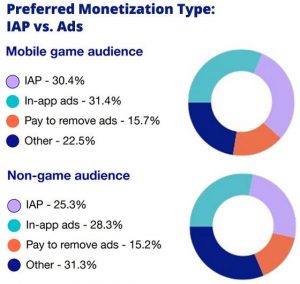
Any business knows diversity is not just a critical component of global success, but a key driver of innovation. And today, the talent pool is more diverse than it has ever been.
The current global workforce includes five generations of workers comprised of a wide variety of genders, cultures, sexual orientations, and ethnicities, and businesses need an effective and accurate way to sort through candidates in order to find the talent who will engage with their companies and be best-suited for their roles as well as their organizations.
Using cognitive ability pre-hire assessments is common practice for businesses throughout the world in finding such candidates. These tests offer valuable insight into each applicant’s abilities and they serve as an accurate predictor of future job performance.
However, recent findings in the International Journal of Selection Assessment have shown different groups of applicants hold different opinions regarding these assessments. In their Netherlands-based study “Ethnic Differences in Perceptions of Cognitive Ability Tests: The explanatory role of self-serving attributions,”Janneke K Oostrom and Britt de Soete examined the role of individual test-takers’ ethnicities in cognitive test perception.
Who Gets Credit When We Succeed (Or Blamed When We Fail)? Self-Serving Attribution Styles
Humans have a number of ways of protecting themselves from damaging blows to their self-esteem, and the attributional process explains how individuals perceive and infer the causes of various events.
For instance, when an individual succeeds, he or she might attribute that success to internal, stable, controllable factors, e.g., “I landed that job because I know the industry, I’m experienced, and I’m outgoing.” However, when an individual fails, he or she might ascribe these failures to external, unstable, and uncontrollable factors, e.g., “I didn’t get that job because the other applicant went to the same school as the interviewer.”
The researchers of this study posit that the strength of self-serving bias may be influenced by an individual’s situation as well as cultural factors. Research suggests attribution formation happens quickly when an event is surprising, stressful, novel, and important. Since these conditions are inherent in selection contexts, the researchers say, attribution is likely to play a large role during the application process.
Applicants who attribute their performance to internal, stable, and controllable causes – like their knowledge of the test material – are more likely to perceive the tests as fair. Whereas applicants who attribute performance to external causes – like the content of the test – tend to view tests as unfair.
The Role of Self-Serving Attributions in Testing Assessment Perceptions
Oostrom and De Soete explain cultural factors influence individuals’ tendencies to rely on self-serving attribution bias in the context of assessments. In this study, the researchers explain two factors underlie the expectation that ethnic differences in attribution style lead to more unfavorable perceptions of cognitive tests among ethnic minority groups:
- The cultural values, customs, traditions, and characteristics reflected by the material in the tests
- Awareness that ethnic minority members generally obtain lower scores than ethnic majority members
For these reasons, the authors pose that it can be expected that ethnic minority applicants display a greater tendency towards using self-serving attributions than ethnic majority applicants in the context of cognitive assessments, potentially affecting their perceptions of the tests.
Parameters of Study
The study involved 180 unemployed individuals who were actively seeking employment. The median age of the participants was 32.44, and they had varying levels of education and prior work experience. Slightly more than half of the final participants were from the Dutch majority ethnic group, while the remaining participants associated themselves with one of the Netherlands’ minority ethnic groups.
Participants were given both a pretest and a posttest questionnaire assessment to evaluate perception, along with five sections from the General Aptitude Test Battery (GATB). As a means to encourage accurate testing results, all participants were told they that they would receive a copy of their test results and that they could review these results with their employment counselor.
The Results
After studying the results of these tests, Oostrom and de Soete determined that ethnicity did play a role in applicants’ perceptions of cognitive pre-hire assessments.
Results showed that the ethnic minority participants were more likely to base their perceptions on previous testing experience and performance versus those participants from the ethnic majority. In fact, this previous testing experience had a significant effect on perception for the ethnic minority applicants, whereas it had little to no effect on those applicants from the Dutch majority.
Furthermore, study results showed that the ethnic majority applicants were more likely to have a controlled and internal attribution style than the ethnic minority applicants were. In addition, there was a direct correlation between attribution style and hiring assessment test perception, with those having a controlled and internal attribution style perceiving the test more favorably, while those having an external and unstable attribution style perceiving the hiring assessment test more negatively.
Consequences of Negative Perceptions
Why do these results matter? Because, negative perceptions in regards to hiring assessment tests can have a variety of consequences that should be considered, including:
- Potentially Diminished Test Performance: Many studies have shown a direct relationship between test perception and hiring assessment test performance. Those applicant that perceive the test negatively or unfair tend to have lower actual test results.
- Job Acceptance: Applicants that perceive the hiring assessment test to be unfair are less likely to accept the position when offered. They tend to have a more negative view on the company as a whole, and they are less likely to refer other applicants to the company, whether offered a position or not.
- Formal Complaints: Applicants that perceive the hiring assessment test to be unfair, especially when thought to be due to their ethnicity, are more likely to file a formal complaint against the company.
Overcoming Negative Perceptions of Cognitive Testing Assessments
While ethnicity does play a role in hiring assessment test perception, there are several things companies can do to minimize the effects of this perception. Coaching and practice can help to alleviate test-taking stress and improve overall test perception. Companies can offer several practice questions prior to testing to give the applicant a better understanding of what the test is like. Providing an opportunity for retesting is another option that can help to improve test perception, as well as the accuracy of the hiring assessment test results.
In addition, companies should evaluate their hiring assessment test parameters, such as testing environment, time limits, test instructions, and test format. Small changes to the test itself that cater to the primary attribution style of ethnic minorities also can help to improve perceptions. However, it is important to note that any changes to the hiring assessment test process should be done to improve the accuracy of the test results, and not to solely change perception.
It is important for organizations to recognize the correlation between ethnicity and hiring assessment test perception, as well as the relationship between test perception and test performance. This will allow businesses to develop strong testing procedure that identify top talent applicants from all ethnic groups.
Business & Finance Articles on Business 2 Community
(169)
Report Post







